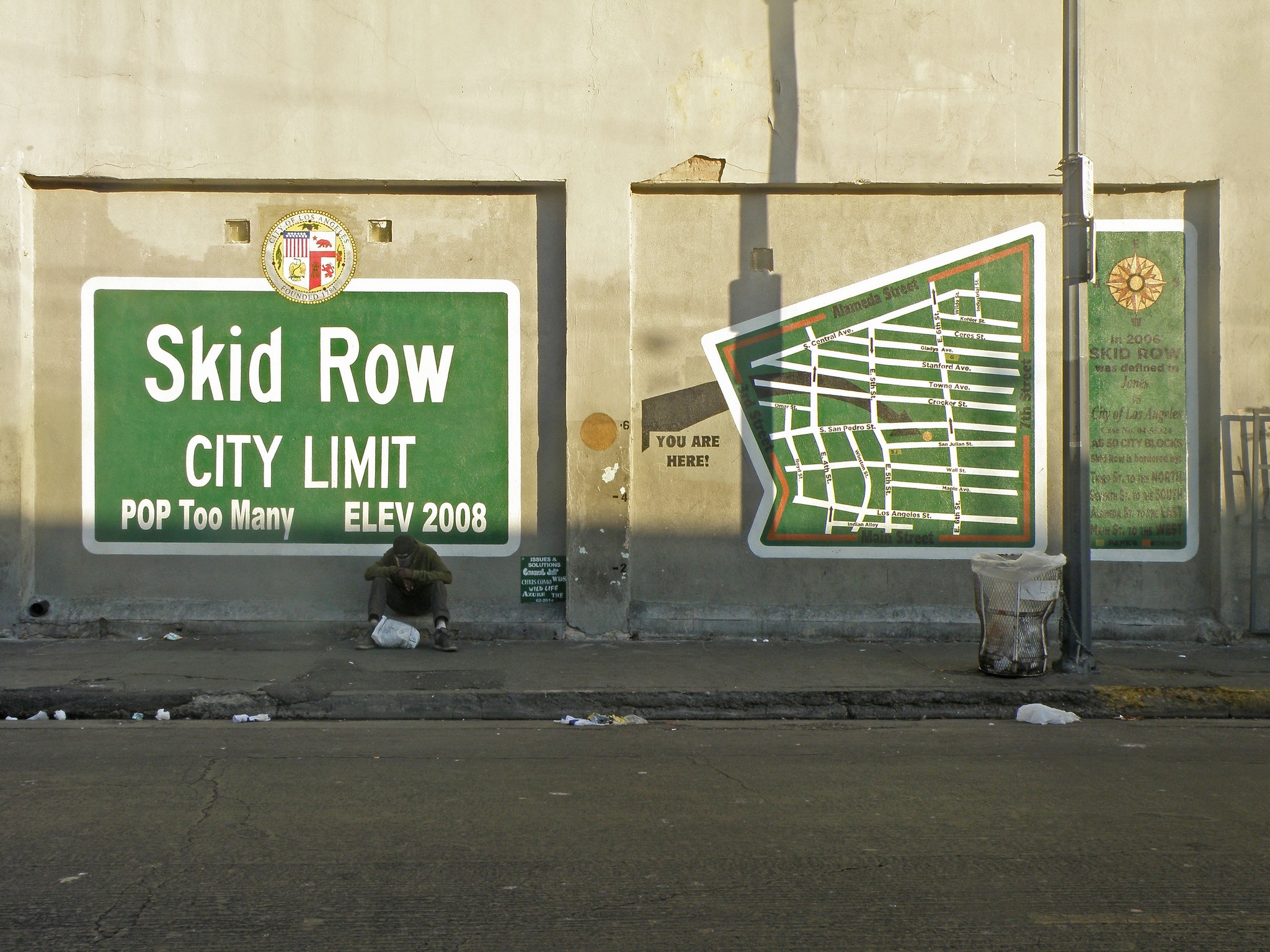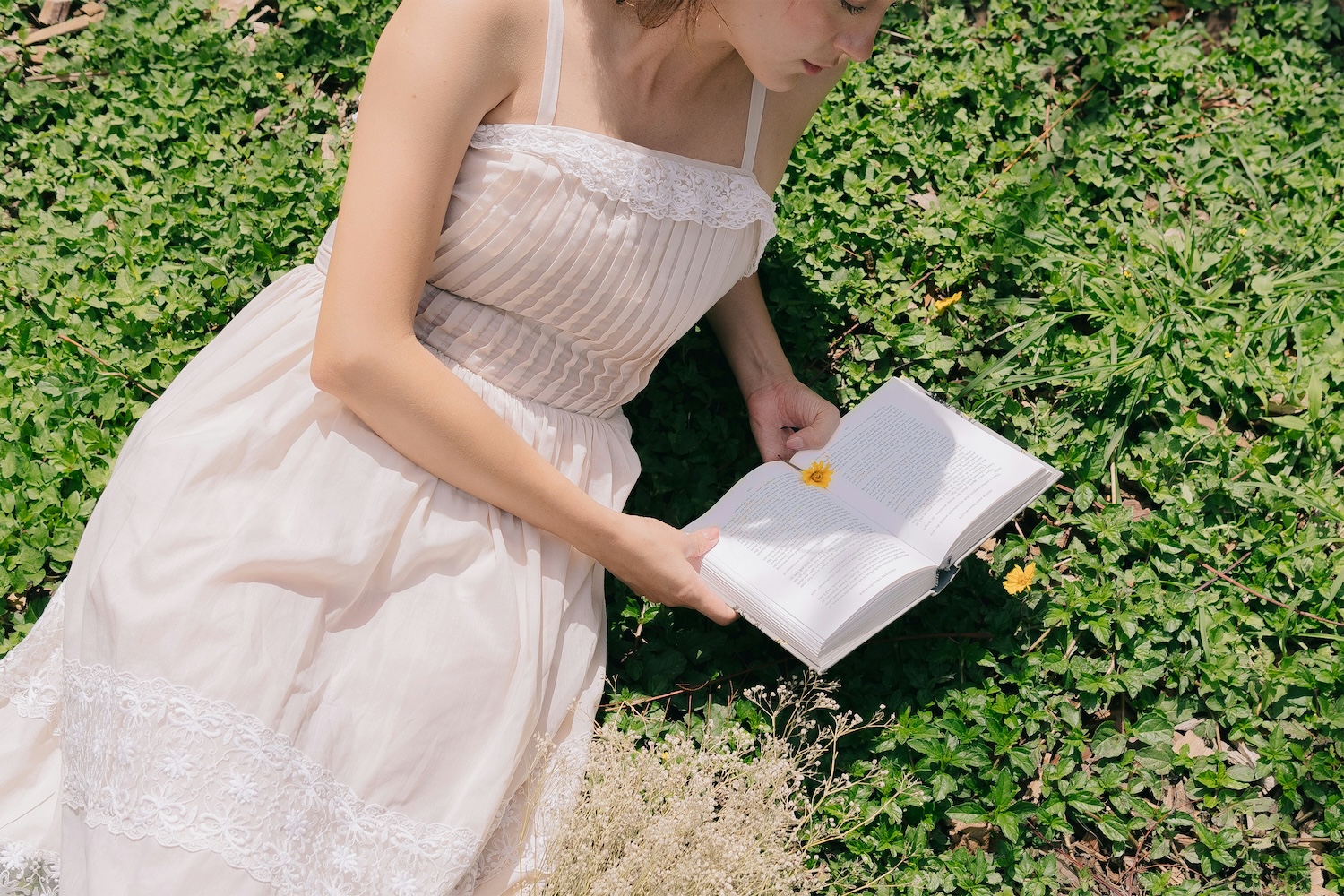okey-panky
A Bristling Sculpture Waiting to Be Named
Four poems by Jessie Tu
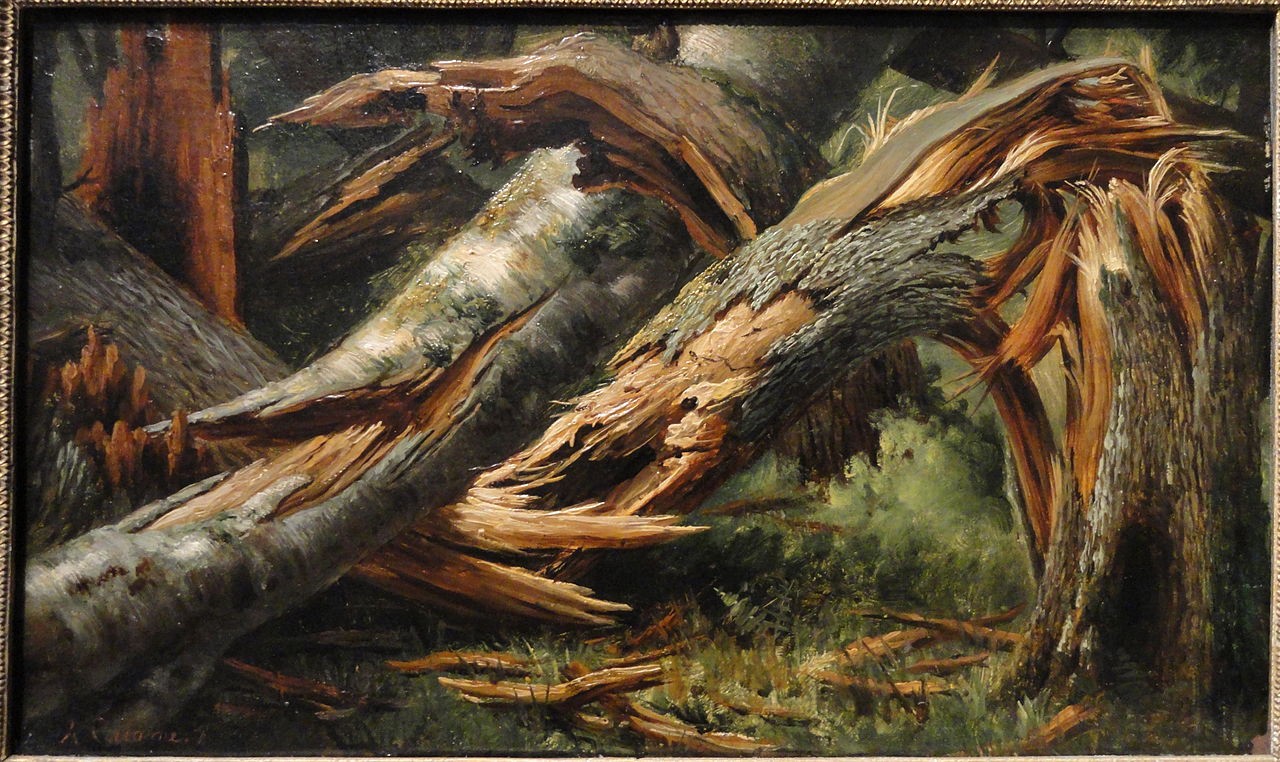
A Bristling Sculpture Waiting to Be Named
Becoming that one with the hair
the trees over there have arms tangled in intercourse
—a moving tomb that crawls inches by the decades.
an amber tint has leaked from the sky, somewhere
far,
somewhere with no name
and thrown bucketful
after bucketful
of itself onto the chapped surface of the
tree’s waistline.
i try my hardest to get her attention
but she has already
started to kiss him
her green hair giving way to the wind,
the strands of dead brown ribbons hanging
gnomic, winsome, childish.
i want to go up to her and
brush against her hunched shoulders,
knot my fingers through her’s as
she is locking necks with this other one.
in another i see her warm mouth tremor against the
still brick wall they pose by,
a hundred flickering diamonds cast
off from the cracked asphalt
—they have done it
and they are exhibitionists.
i want to go up to him and clamp down
his roots, bruise his forearms, steal his strength
but
the indian minors cling on to both their heads
so i cannot move, not even an inch.
i remain amorphous
to them i am a bristling sculpture waiting to be
named or used.
in another life i would be far away from this carcass
forgetting my old age.
this face, i have always known it was mine,
but i wore it like indignity
suspicious of those who stare.
i pout my plump limbs and flick my hair
they stand still with obdurate faces
chaining plastic signs around me as panoply
they will soon send me to a prison
a nullity of nature
then make me into something where
shoes clap against me in a nave
somewhere
far
somewhere with no name.
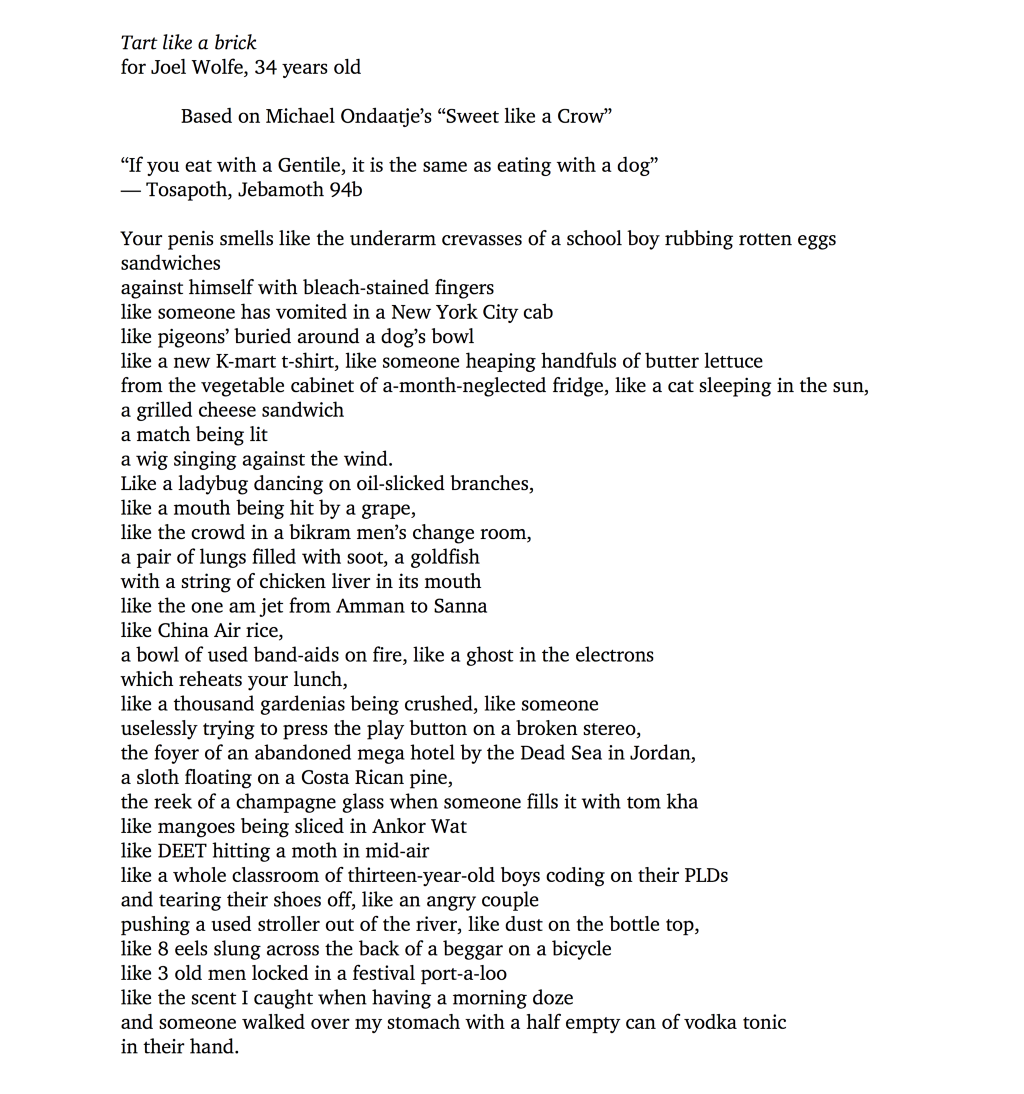
For the kinder one
Because it was made in the time that it took
and because nobody else was there to see it,
I could not tell you then
what happened to the tree—
the how it fell and the how it drained.
Once it was taken, the barks began to slide,
they slipped off the skin of the skin
like water on rock
and many things I have yet to see.
Because nobody told you to see
to see
and nobody warned you of the slip
and the slip
the how it grew off and the how it shed like open pores.
I made a sign with my fingers through your fingers
like an unbroken chain ready to
break in all the right places.
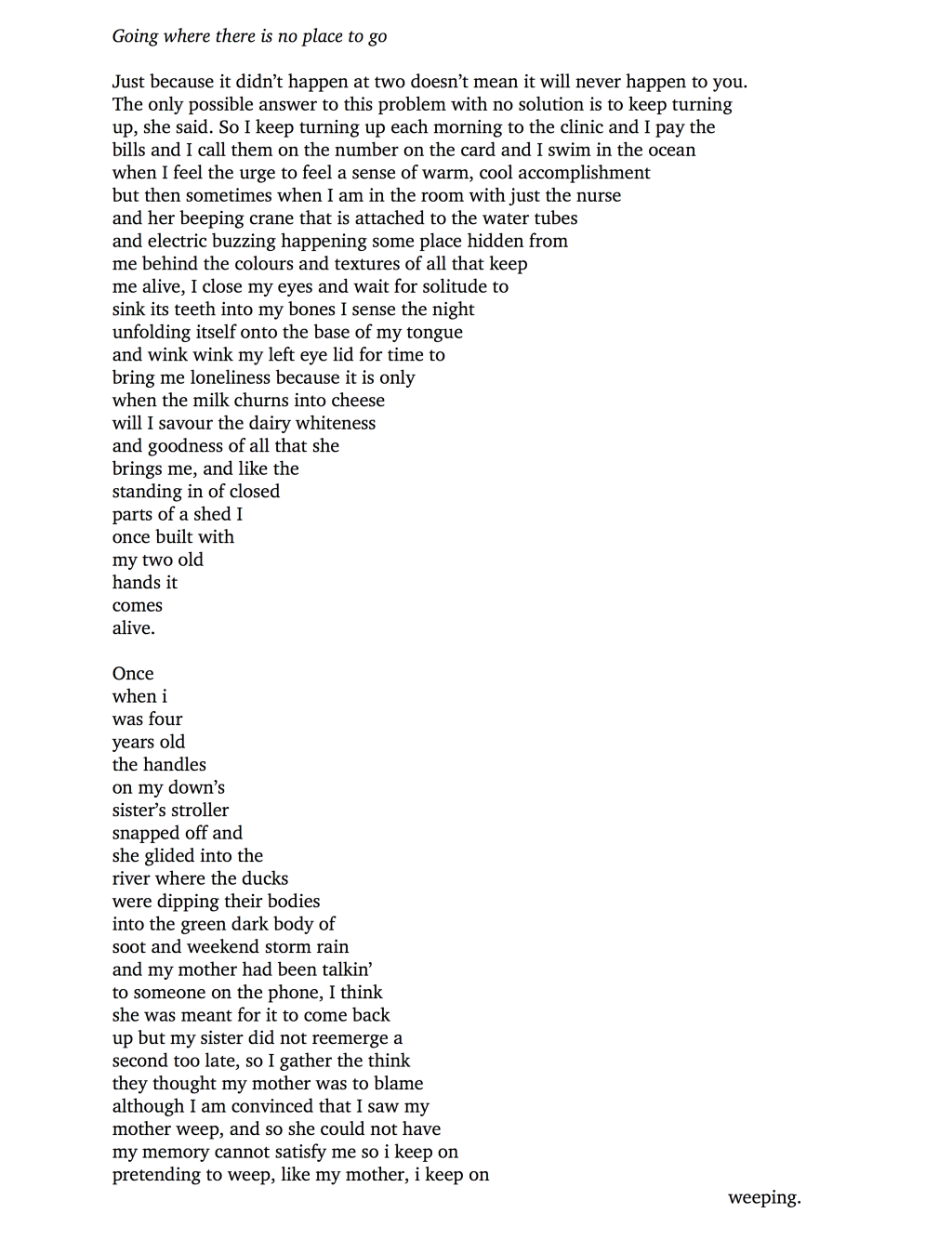
Solitary Confinement
My mother knows this house well,
she knows its speech and candor.
For years, since our migration
from the foreign land of our birthplace it has become her dearest friend —
her only friend,
her orphan and her orphanage.
During the years of our schooling, the years I’ve now forgotten,
the house became her companion, her closest confidant
and saving grace.
She’d leave only to walk out the front
to admire its view from the street,
to trace with her gaze its tall impervious frames,
in all its shiny double bricked splendour.
She’d spend her days studying its
cracks and misalignments—
the timber limbs and uncanny scars.
They provided a comfort, a reciprocated respect
something not quite present through her relations with people.
I had not known of the quiet dissatisfaction.
I had not known of the wailing walls.
I had not known of her secret mantra and the
space between the two cracks on the ceiling that
comforted her when my father lost his humanity.
I remember the night my father forgot we were in the house and
slammed his head against the kitchen door
and my mother emerged after we were put to bed
and wiped the crimson spots on the splinted knob.
My mother spoke to the rooms often.
She spoke to them more than us.
Had I known of its meaning, its worth
I’d not have signed the papers.
Bones in Birds, Weakness in Poetry, Murder in Kansas




